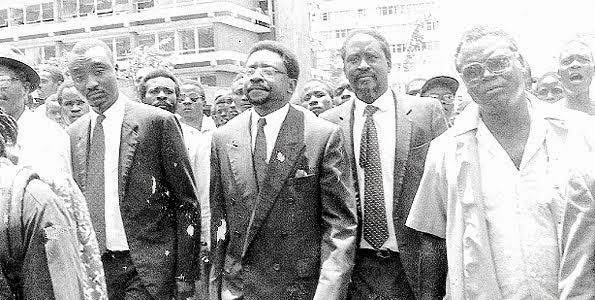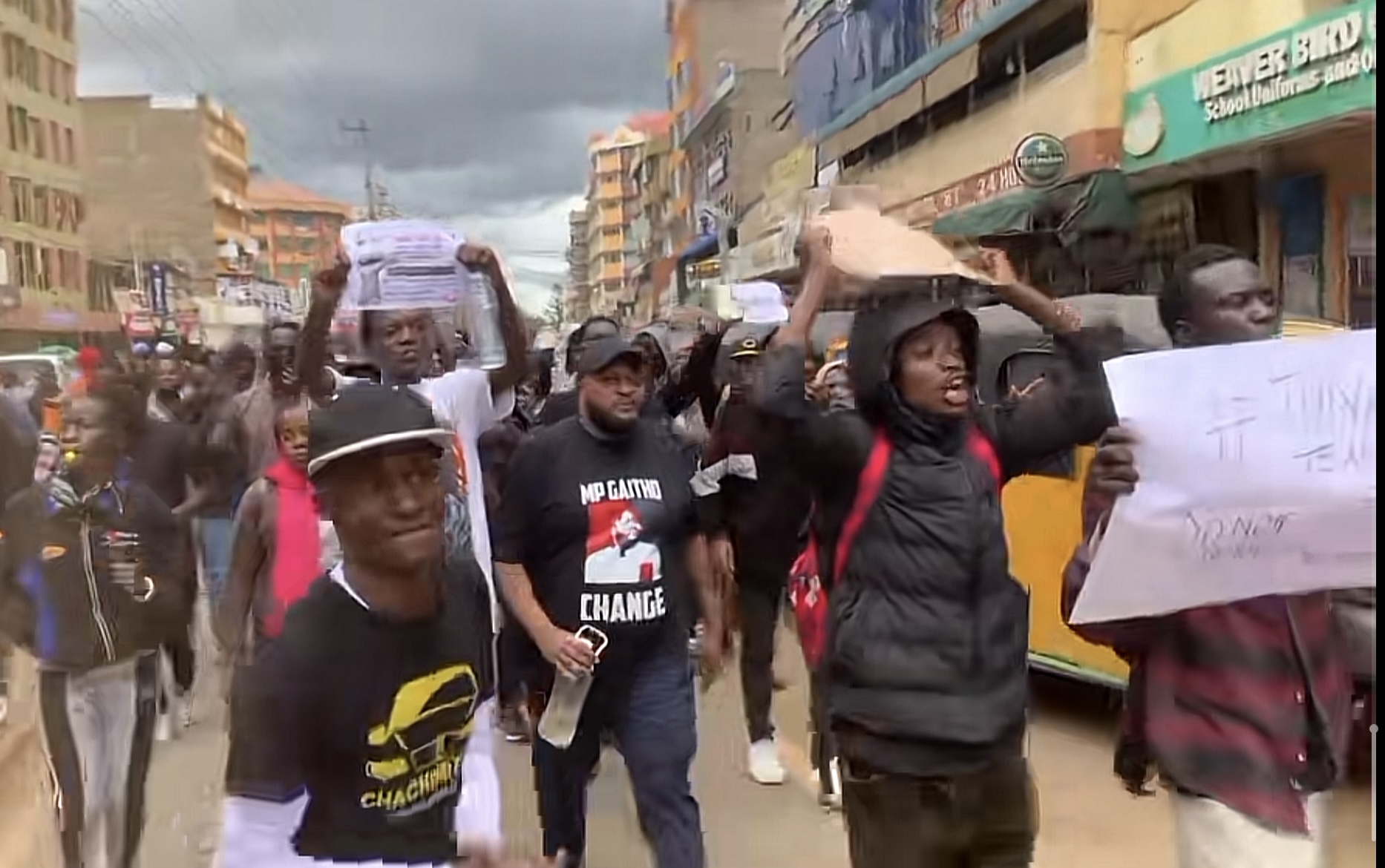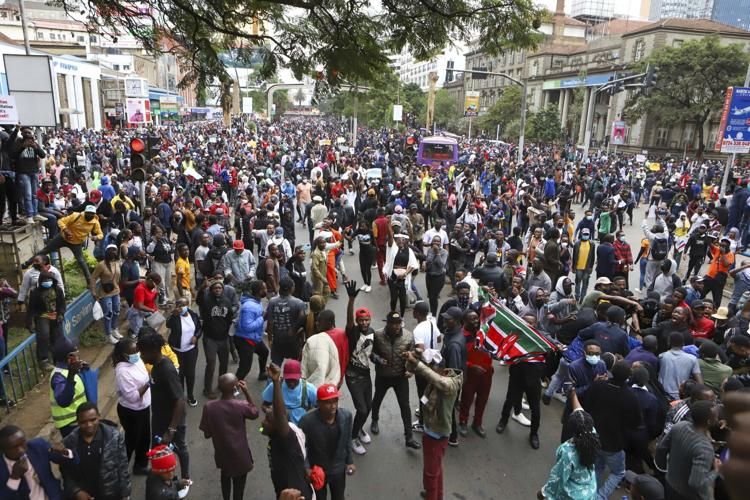In Kenya, the phrase “Gaitho hatujawai kuona kwa streets” (“We’ve never seen Gaitho in the streets”) has been weaponized by detractors to question my legitimacy as a voice of change.
This taunt is not a spontaneous critique but a calculated narrative, designed to frame street presence as the sole measure of leadership. Such rhetoric dismisses the importance of intellect, vision, and strategic engagement, reducing civic participation to a performative act.
My presence in public spaces has never been a prerequisite for leadership, nor is it the aspiration of every transformative figure.
This narrative is a product of what I term the Fame Industrial Complex, a sophisticated, state-controlled system that has manufactured Kenya’s political class since the advent of multiparty democracy in 1992, when the country transitioned from a single-party state under President Daniel arap Moi.
The Historical Context: A Legacy of Control
The Fame Industrial Complex emerged in the wake of Kenya’s shift to multiparty politics, a period marked by heightened political competition and the need for the state to maintain control over the narrative.

FRAUDULENT OPPOSITION: Gitobu Imanyara, James Orengo, Raila Odinga and the bandwagon of “leaders” who squandered the 90’s wave of change
The ruling elite, accustomed to unchallenged power, developed mechanisms to ensure that only approved figures rose to prominence.
This system was not about fostering genuine leadership but about creating a controlled opposition, individuals who could simulate dissent while reinforcing the status quo.
The 1990s saw the rise of figures like Martha Karua, James Orengo, Kivutha Kibwana, Willy Mutunga, Gitobu Imanyara, Kiraitu Murungi, and Raila Odinga, whose carefully curated activism never truly disrupted the establishment.
Their prominence was amplified through relentless media exposure, embedding their names in the public psyche until they became synonymous with leadership at the ballot box.
This era also saw the consolidation of state influence over key institutions, media, religion, and public spaces, creating a conveyor belt for producing compliant politicians. The state’s grip on these platforms ensured that only those who served its interests could gain the visibility needed to ascend to power.
This historical context is crucial to understanding the persistence of Kenya’s ideological capture, where a neocolonial and kakistocratic elite has maintained dominance through decades of manipulation.
The Mechanics of the Fame Industrial Complex
The path to political fame in Kenya hinges on two pillars: media presence and physical visibility, both tightly controlled by the state.
Media: The Gatekeeper of Public Consciousness
Kenya’s media landscape is a carefully curated stage. Prominent platforms, such as Jeff Koinange’s television shows or morning programs on stations like Spice FM, feature a revolving door of guests who align with the state’s agenda. Even those who pose as opposition figures are often vetted to ensure compliance, creating the illusion of diversity while maintaining ideological conformity.

Jeff Koinange’s JKL is an establishment conveyor-belt churning out the same bandwagon and juvenile and infantile guests
Vernacular media, which holds significant sway in shaping rural and community-level opinions, is even more tightly controlled. Only individuals who serve the establishment’s interests, often those willing to perpetuate divisive ethnic or populist narratives, are granted airtime, positioning them as viable candidates for elected office.
This control extends beyond traditional media to digital platforms, where state-aligned influencers and propaganda campaigns shape online discourse. The media’s role is not just to inform but to manufacture consent, ensuring that the public’s perception of leadership aligns with the state’s preferences.
Physical Presence: Churches and the Streets
Beyond media, physical platforms are critical to the Fame Industrial Complex.
Churches, which command immense influence in Kenya’s deeply religious society, have been co-opted as political stages. Religious leaders, often incentivized by political patronage, proclaim that “leaders are chosen by God,” sanctifying establishment figures and framing their ascent as divine will.

The corrupt religious establishment platformed war-criminals and economic hitman claiming that “leaders are chosen by God”
This nexus is further reinforced by cultural figures like gospel musicians, Karangu Muraya and others, who act as bridges between politics and popular culture, embedding political messaging in music and public events.
The streets, often romanticized as the crucible of dissent, are another controlled arena.
The government frequently orchestrates or permits protests to elevate select individuals into the spotlight. For example, following the tragic death of Albert Ojwang, protests outside City Mortuary and Central Police Station were allowed to proceed, with police oversight ensuring that only state-approved figures gained media coverage.
These individuals, previously obscure, are propelled into prominence through carefully staged optics, positioning them as movement leaders and future political candidates.

The manufactured protests outside Central Police Station saw restrained police action and even “fun” moments of selfies
The narrative that street presence is a rite of passage for leadership is itself a construct, designed to devalue intellectual and strategic contributions while glorifying performative activism.
My Encounter with the System: A Case Study in Repression
As Francis Gaitho, I have not been absent from the streets. In June 2024, I participated in protests against government policies, as evidenced by videos on my social media platforms, including TikTok. My involvement was not performative but surgical, calculated to challenge the establishment’s narrative with precision.
Having built a following as a content creator since 2022, my street presence amplified my influence, catching the state off guard.

Even with the presence of empirical evidence, state-sponsored propagandists perpetuate the falsehoods that Francis Gaitho does not attend protests because they have nothing else to offer
The response was swift and severe: my arrest, abduction, and a barrage of fictitious charges orchestrated by Kenyan intelligence.
The Directorate of Criminal Investigations’ Special Crimes Unit, led by Michael Sang, confiscated my gadgets, crippling my ability to create content and sustain my livelihood. The Office of the Director of Public Prosecutions, in collusion with a compliant judiciary, prolonged my legal battles to force me into a contrived “settlement.”
This was not mere punishment but a deliberate strategy to co-opt me into the Fame Industrial Complex as a subdued vessel of state propaganda.

Francis Gaitho’s persecution including confiscation of electronics to impede his capacity to earn a living was simply because he declined offers to be co-opted as a vessel for state-propaganda
My refusal to comply made me a target, exposing the state’s inability to engage in a battle of ideas. Its only tools, arrests, intimidation, and, in extreme cases, extrajudicial killings, reveal the fragility of a system built on propaganda rather than legitimacy.
The Broader Context: Ideological Capture and Global Dynamics
Kenya’s political hegemony is a toxic blend of neocolonialism and kakistocracy, rule by the least competent. This system is the product of decades of brainwashing through religion, education, and media, creating a manufactured consensus that sustains the elite.
The educational curriculum glorifies colonial and post-independence elites, while religious institutions sanctify their successors. Media, both traditional and digital, reinforces this narrative, ensuring that alternative voices are marginalized.
Globally, this system is sustained by Western influence, which executes ideological capture with sophistication and finesse. Unlike Kenya’s crude tactics of silencing dissent through violence, Western powers embed their influence through cultural and economic dominance, avoiding overt repression.
The death of Albert Ojwang in 2024, and the subsequent state-orchestrated protests, exposed the limits of Kenya’s approach.

Blogger Albert Ojwang’s lifeless body lays at City Mortuary – another casualty of William Ruto’s crackdown on dissent
President William Ruto, despite his perceived importance in global geopolitics, has overstepped boundaries that even his international backers cannot endorse.
His regime’s excesses, abductions, killings, and blatant propaganda, have isolated him, signaling the collapse of a system that relies on outdated tactics.
The Collapse of the Complex
- The Fame Industrial Complex is crumbling under the weight of its own contradictions. The death of Albert Ojwang and the public’s growing awareness of state manipulation have laid bare its mechanics.
My own experience, targeted for my strategic activism and refusal to be co-opted, underscores the system’s desperation to maintain control.

William Ruto and Alexander Soros: Despite their known depravity, the white globalist establishment have their specific red line and William Ruto seems to have crossed it
As Kenyans awaken to the manipulation embedded in their media, churches, and streets, the demand for authentic leadership grows. The future belongs not to those manufactured by orchestrated fame but to those driven by intellect, vision, and an unwavering commitment to truth.
This is the broader context of Kenya’s political reality: a nation at a crossroads, where the collapse of an outdated system offers an opportunity for genuine transformation.
The Fame Industrial Complex may have shaped the past, but its days are numbered as a new generation demands accountability and authenticity.

